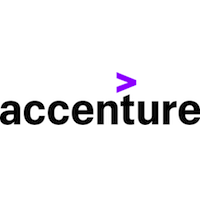
Accenture Ventures
View Brand PublisherHow analytics can unlock value for businesses across sectors
Being a champion requires talent, skill, expertise, hours of practice, dedication and a secret ingredient: analytics.
This is at least true for Italian motorcycle racing team Ducati Corse. When the Ducati team wanted to enhance its bike configuration testing to make it more efficient and insightful along with reducing the time, cost and effort involved in the process, they turned to Accenture.

Through an intelligent analytics solution which combined Artificial Intelligence and Internet of Things (IoT), Accenture created a mobile application that could simulate and monitor a motorbike’s performance under varied track and weather conditions. The resultant insights are helping them improve their performance and race ahead of competitors.
AI without Analytics is not as smart
Today, Analytics plays a significant role across different sectors because, as they say, “AI is only as smart as the insights that fuel it.”
In a report “AI Momentum, Maturity and Models for Success” by SAS, Accenture Applied Intelligence and Intel with Forbes inputs, most AI leaders who were surveyed said analytics and AI are inextricable from one another. Among survey respondents, 79 percent of companies that reported having experienced real success after deploying AI-based technologies, added that analytics has played a “major” role in this.
In an increasingly connected world, where new technologies are leading the way, analytics is an essential ingredient to make enterprises more intelligent by unlocking valuable insights. Now more than ever, companies need actionable insights to improve performance, increase efficiency and gain competitive advantage.
By applying analytics to the millions of data points they already have, these companies can make better business decisions at a faster pace. In turn, this helps reduce costs and risks.
Broadly, analytics can be classified as:
Descriptive Analytics: Offers similar data points with a common classification that explain what happened
Diagnostic Analytics: Runs statistical models or correlations to explain what happened
Predictive Analytics: Looks at current and past data to find trends and patterns to help forecast the probability of the situation occurring again in future; and
Prescriptive Analytics: Suggests decisions, actions and implications from predictive models to improve decision-making.
All of these are incrementally more sophisticated and complex, and with each step, the value delivered by that type of analytics goes up commensurately.
The impact and benefits of analytics
For companies looking to make the most of analytics, the first step is to clearly define and prioritise the problem at hand, determine the kind of data needed as well as the type of analytics required to generate the appropriate insights from the available data. This, in turn, will help deliver a more focussed and relevant business impact based on the industry and sector.
Choose the best supplier: For instance, as a procurement company you want to choose the right supplier for your business. Analytics can help improve your price points through market knowledge, help you identify best suppliers and even create negotiation strategies specific to these suppliers. Additionally, intelligent automation backed by analytics can help you reduce effort and cost involved in assessing supplier responses and choosing the right suppliers.
Reduce risks in operations: May be, as a bank, you want to make your risk-management activities more efficient and cost-effective. In this case, a cloud-based data analytics utility such as the one offered by Accenture, that focuses on risk-management capabilities, including anti-money-laundering (AML) compliance, cybersecurity and third-party risk management, can help. The utility also provides a common, secure platform for banks to upload their data, enabling them to achieve the benefits of scale they could not accomplish individually.
Claim hidden financial benefits: Imagine an oil and gas company discovered, it can use analytics to get sizable financial benefits. The company identified $200 million in non-compliant purchase order spending and, by eliminating loopholes, reduced spending by 10 percent. It also generated more than $300 million in benefits by detecting and recovering over-payments across 183 contracts.
Enhanced productivity, lower costs, reduced overall risk profile are just some of the benefits that a robust analytics framework can bring to an organisation.
Any organisation is home to millions of data points, some owned, and others from external sources. Then, there is dark data — unused information from other sources, which largely remains inaccessible and unused, mostly because organisations have very little idea on how to turn it into actionable insights. That’s why it’s critical for companies to focus on choosing the right analytics capabilities which will result in a steady stream of intelligent and relevant insights leading to faster, smarter decisions accelerating innovation.
Accenture Ventures’ Applied Intelligence Challenge
Applied Intelligence is about combining analytics, data science, AI and intelligent automation to enable all this and more. Applied Intelligence helps transform businesses comprehensively across functions and processes, enabling them to maximise existing investments, extending new technologies and scaling opportunities as they arise.
The 2nd edition of Accenture Ventures’ Applied Intelligence Challenge is looking for B2B start-ups with innovative use cases in Applied Intelligence.



1560347656770.png?fm=png&auto=format&h=100&w=100&crop=entropy&fit=crop)






